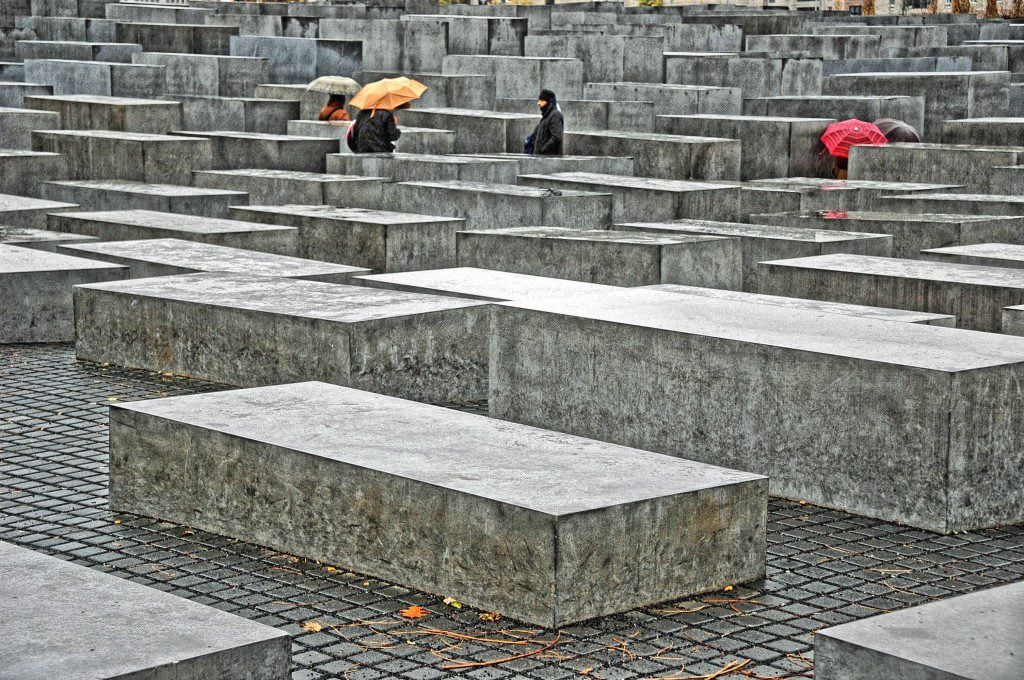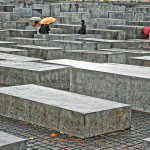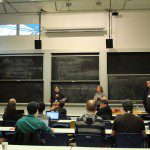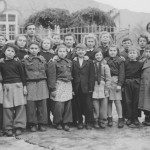
Yesterday Pew, or specifically the Religion and Public Life arm of the Pew Research Center, released its latest study on “What Americans Know About the Holocaust.”
Yes, the historical understanding of the Holocaust is deemed a matter of “religion.” Yikes.
As far as the key question, “do Americans have at least a minimum clue of what the Holocaust was all about?” well, I suppose it’s all a matter of expectations. Pew asked its interviewees to state in their own words, what the Holocaust was. 66% said that was the “annihilation of Jews” or a similar answer. A further 12% give answers showing some general understanding (“concentration camps” or “persecution of Jews”) and 6% give answers about death in general (that is, without apparently placing it in any specific context). 3% said something else entirely, 3% said they didn’t know, and 10% didn’t give an answer at all.
As always, there’s a lot that’s relative. Is 66% definitely know, and 12 – 18% kinda-sorta know, good or bad, relative to the degree to which Americans are shown to have or lack basic knowledge in all sorts of ways? And, of course not just Americans, but just, well, people, in general.
The survey also asked four historical questions — oddly none of them were about concentration camps, which is annoying because that would at least have tested the most rudimentary level of knowledge and sometimes I think these sorts of questions are intentionally made difficult in order to make the claim more dramatic. Instead, these questions were:
When did the Holocaust happen? Between 1890 and 1910, between 1910 and 1930, between 1930 and 1950 or between 1950 and 1970. 69% of Americans got this right.
What were Nazi-created ghettoes? Parts of town where Jews were forced to live, places where Jews were killed, factories where Nazis forced political opponents to work, or housing for poor Nazis. Surprisingly, almost as many people got this right, at 63%, though I think the answer choices might explain this: if you know that the “places where Jews were killed” were concentration camps, and the other two responses were not related to Jews, you’d get to the correct answer by process of elimination.
How many Jews were killed in the Holocaust? Less than 1 million, approximately 3 million, approximately 6 million, or more than 12 million. 45% answered correctly, 29% were “not sure/no answer” and the remainder were pretty much split at 12% each for 3 and 12 million, with only 2% saying “less than 1 million,” the standard denier’s answer that there was persecution but not mass murder.
And how did Hitler become chancellor of Germany? By democratic political process, by violently overthrowing German government, by hereditary succession, or by agreements with nearby countries. 43% said “democratic political process,” 25% said a violent overthrow, 28% were not sure/no answer, and 2% each gave the other replies. Now, honestly, I can’t get all that upset about people answering that it was a violent taking of power, given that it’s reasonable to think that if the only fact that you’ve remembered is the Reichstag fire, perhaps paired with a vague impression of violence formed from Kristallnacht. And “democratic political process” isn’t quite right, or at least it’s misleading in that the Nazis were nominally the minor party in a coalition and he gained his power more by intimidation than by democratic political coalition-building. But in any case, as an answer to a simple multiple choice question, it’s the right choice.
But helpfully, the Pew report breaks down the results by question and by demographic group, and we have a convenient upper bound: 90% of Jews said that the Holocaust occurred between 1930 and 1950. They provide splits by religion/denomination, and, not surprisingly, those denominations associated with more educated members had greater percentages correct: 76% of Mormons got this right, and 74% of Mainline Protestants, but only 67% of Catholics.
Split by education level, 55% of those without a high school education knew the approximate timeframe, 70% of those with some college, and 84% of those with a college degree.
But here are two surprising statistics:
Blacks performed far worse than whites on this quiz, and women did worse than men.
To take these in turn, 39% of blacks knew the timeframe, vs. 53% of Hispanics, and 78% of whites. The numbers tumble even further for the other questions: 27% said that 6 million Jews were killed, compared to 51% of whites, and 18% said Hitler became chancellor through democracy. Yes, they would collectively have been better off guessing.
And blacks who identified as Protestant of a historically black denomination did even worse that blacks as a whole: 35% got the timeline right, 23% said 6 million Jews were killed, and 11% said Hitler became chancellor through democracy. What explains this? And note that those rates are considerably lower than the knowledge rates for Americans, in general, with a high school diploma or less, at 55%/33%/29%.
Is it simply a matter of the lower educational attainment for blacks in America? According to the Census Bureau (via the website Black Demographics), more than half of that group has at least some college education, so, in general, they ought to do better than the high-school-only Americans, unless, that is, the quality of education in predominantly-black areas is so poor that extra years of schooling can’t make up for it.
Incidentally, Hispanics scored at a level in-between blacks and whites, which I admit to being surprised at, given that a large percentage of Hispanic-identifying folk are immigrants with little education. Perhaps it’s just a given that they aren’t a part of the polling?
And here’s the second surprise: women’s scores were notably worse than men’s.
61% of women got the general timeframe question right, compared to 78% of men.
58% of women knew what ghettoes were, vs. 69% of men.
38% knew that 6 million Jews were killed, vs. 53% of men.
And 35% knew the democratic-process question, vs. 53% of men.
To be honest, that’s dismaying, especially because we’re constantly told that women are doing so much better in school than men are, but that hardly seems to be the case here.
Separately, when I commented on this on twitter, someone observed that this seemed to be the norm, and pointed me to a 2017 Pew current events multiple choice survey (the report, oddly, doesn’t show the gender split, but you can see it if you click through the quiz yourself): the two “human interest” questions had nearly even rates correct (71% of men and 72% of women identified lead as the problem with the water in Flint, 88% of men and 85% of women answered that mosquitoes were the cause of Zika), but the more politics-oriented questions had a pronounced gap: 71% of men but only 53% of women knew that Nancy Pelosi was the House speaker and 67% of men but only 53% of women knew that the UK was the country aiming to leave the EU, for example.
So this is all just, well, strange. What do you make of it?















